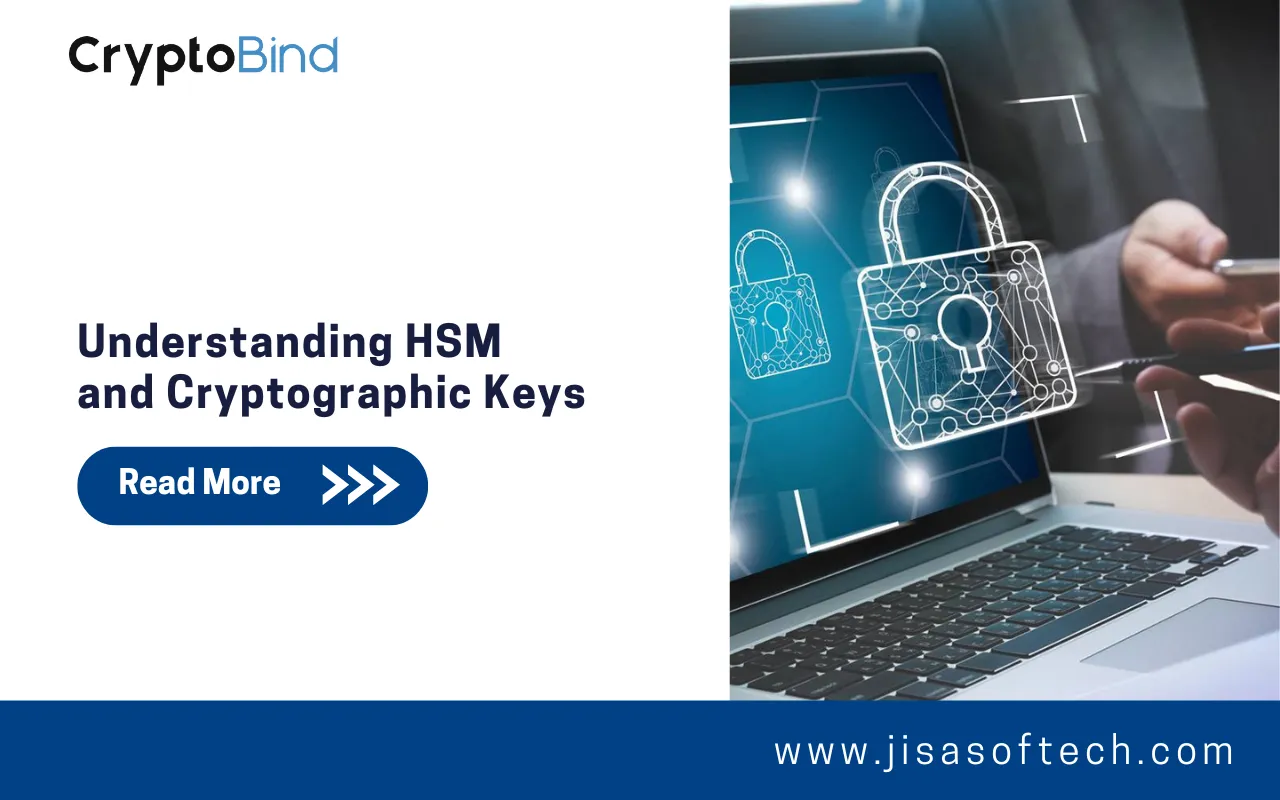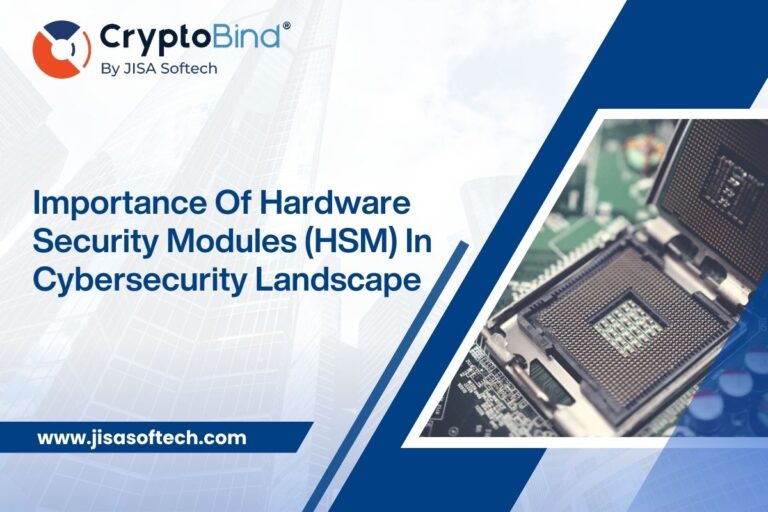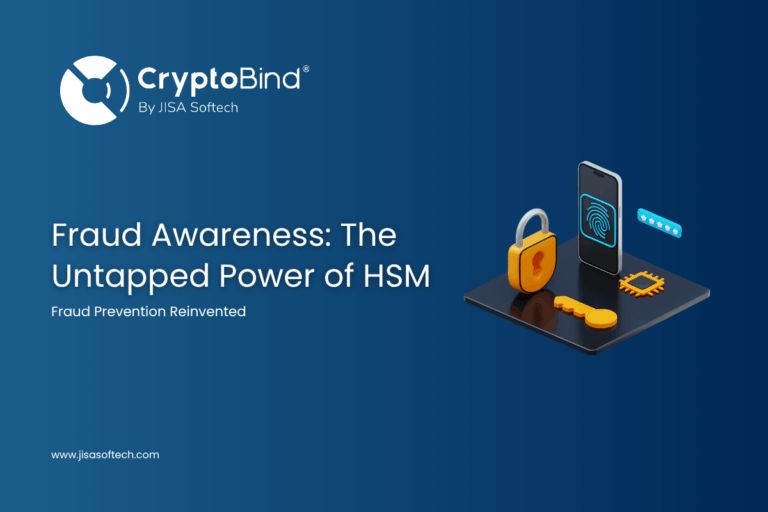Cryptographic Keys and Hardware Security Modules
One of the fundamental components of cybersecurity is cryptographic keys. They help to establish secure networks for client-server communication and keep data safely protected. They are unfortunately a prime target for hackers as a result. A single compromised key can enable other harmful operations like unauthorized system access or the signing of digital certificates in addition to providing access to personal information and valuable intellectual property.
What Exactly Is a Cryptographic Key?
A cryptographic algorithm can change plain text into cypher text or vice versa using a string of bits known as a cryptographic key. This secret key guarantees confidential communication.
The essential element of all cryptographic operations is a cryptographic key. Encryption and decryption are two procedures that are frequently included in cryptographic systems. When a cryptographic method is used to carry out this kind of activity, a key is a component of the variable data it receives as input. The security of the cryptographic system is reliant on the safety of the keys used in a properly built cryptographic system.
Cryptographic Key Management:
Cryptographic keys need to be managed, just like any other perishable resource employed by companies. They must be produced, managed, and when necessary, removed. The following are important key management responsibilities:
- Generating strong encryption keys for organizational needs
- Backing up keys that must be recoverable after system failures
- Securely storing keys, and distributing keys to systems that require them.
- Rotating keys to avoid overexposing them to sensitive information
- Archiving keys that are no longer actively being used for data recovery
- Discarding keys that are no longer needed to prevent illegal use.
So, how do you generate, monitor, store, and use cryptographic keys effectively?
Using an HSM. It’s that simple.
What is Hardware Security Module or HSM?
The Hardware Security Module (HSM) is a physically secure device that protects secret digital keys and helps to strengthen asymmetric/symmetric key cryptography. This sort of device is used to store cryptographic keys for crucial operations including encryption, decryption, and authentication for apps, identities, and databases. They are used to achieve a high level of data protection and trust when employing PKI or SSH. HSMs provide an additional layer of security by keeping the decryption keys separate from the encrypted data. This manner, even if a hack occurs, the encrypted data is not revealed.
Several industries and enterprises have grown to rely on HSM devices for rapid, reliable, and stable data transactions, as well as verification in a variety of use cases.
How HSM works?
An HSM performs all key management tasks in its own secure environment. It can generate completely random keys, which you can then access and use to decrypt data. Using an HSM allows you to separate your data from your keys while trusting the HSM with key management throughout their lifecycle.
Organizations may have one or several HSMs. Even if a company has many HSMs, it can use a centralized key management system to simplify HSM maintenance and assure compliance across the board. HSMs can not only validate data stored in unsafe locations, but also protect it from unauthorized access.
An HSM offers both physical and logical protection of data because it is a physical device. Because they were created for this use, HSMs are secure by design.
Benefits of HSM:
Provides optimum security: HSMs have one of the greatest degrees of external threat protection. It is secure to use and protects against malicious hacks.
Secure Key Management: As only the HSM has the key, tracking and security are made simpler. The technique prevents the key from leaving.
Data Protection: Consider the consumer data carefully. Show customers that you value their privacy by going above and beyond to protect their information.
Flexible for all organizations: HSM as a service makes this technology more accessible for some organizations by providing it for those who don’t want physical HSM but still need to be PCI DSS certified.
Read more: HSM and its benefits
Industries that Could Benefit from an HSM:
A hardware security module useful for any organization that employs cryptographic keys to secure sensitive or personal data. An HSM will be helpful if a compromised key would have serious effects on your company’s compliance, data loss, or other areas.
HSM solutions are often needed by businesses in the Payment Card Industry (PCI) or those that handle data and must adhere to the General Data Protection Regulation (GDPR), but any company that interacts with private data can benefit.
A hardware security module, or HSMaaS, could assist you with better protecting your data and managing your cryptographic keys if you must adhere to compliance regulations for data in your sector.
How we can help you protect your organization’s data:
HSM is the “Root of Trust” in an organization’s security infrastructure as it is a physical device with a powerful operating system and limited network access. We have installed our HSM solution in various organizations including the Indian Banking Regulator, which comes under the control of the Indian Ministry of Finance. Our HSM offers elastic and centralized key operation and management features. Encryption keys are safely maintained in CryptoBind HSM in accordance with organizational requirements.
To strengthen your organization’s security, we provide industry-compliant Hardware Security Module, Cloud HSM, Key Management Solutions, Tokenization, Encryption, Aadhaar Data Vault, and Authentication solutions. Our innovative solutions have been adopted by businesses across the country to handle mission-critical data security and data protection needs.
To know more about our solution, get in touch with us.
Contact Us:
Website: www.jisasoftech.com
Email: sales@jisasoftech.com
Phone: +91-9619222553







